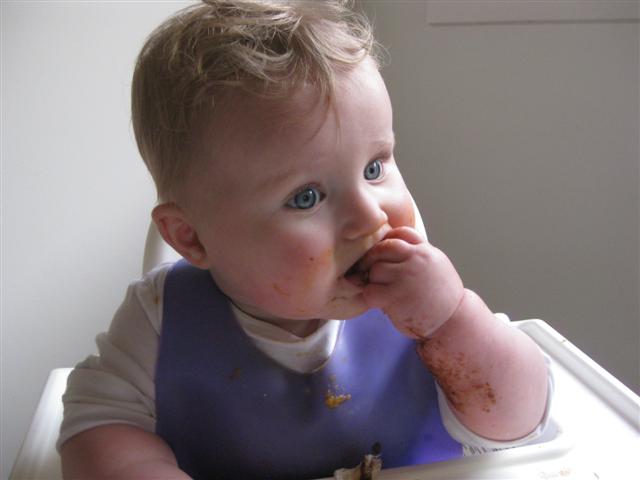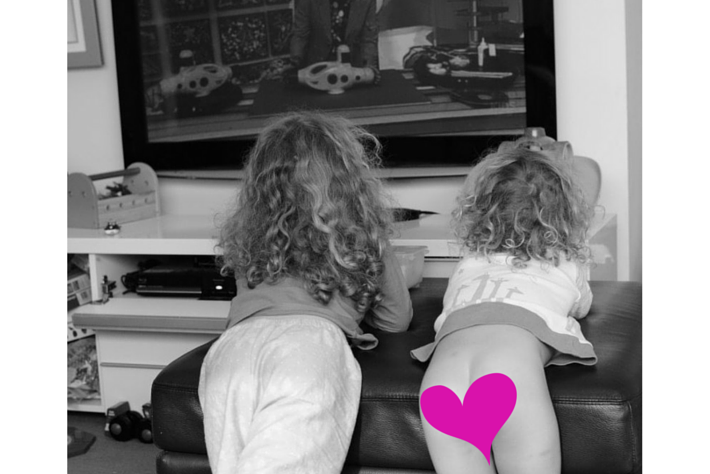This is a guest post from baby feeding and wellbeing advisor, Jane Barry. She is sharing her thoughts and ideas on feeding tips for you and your toddler.
One of the biggest challenges, of course, is toddlers eating their vegetables. My grandmother used to say, ‘don’t worry, by the age of 20 they will be someone who eats their vegetables and eats what they want’. Should parents be worried if their toddler doesn’t eat their vegies?
Not overly. Toddlers are naturally suspicious of new foods and tastes and can reject newly offered foods up to a dozen times before they’ll relent and eat what’s being served to them. Vegetables often don’t look appealing and they aren’t so flavoursome to kids and this combination can be what makes them unpopular. As humans we are naturally drawn to sweet flavours and breast milk, the most natural of all tastes is relatively sweet. Tasting vegetables after six months of having breast milk is certain to cause some interesting reactions!
Vegetables are an ideal source of vitamins, minerals and fibre, but so is fruit and most kids eat fruit even if they’re not keen on vegetables. Fruit though is sweet which is why kids prefer it to vegetables. It’s important for parents to keep trying and offering their kids vegetables, even if they initially refuse them. Eventually, one day they’re likely to show some interest and surprise themselves that they actually like the taste.
What can help is to get kids involved in growing vegetables such as cherry tomatoes and corn; both are fast growing and kids like to be engaged with the whole process from garden to plate. Engage them too with preparing basic salads; tearing up lettuce etc and don’t be too concerned about the mess. Parents have never been able to control exactly what and how much food their children eat. Positive role modelling, making sure healthy food is available and giving toddlers some (limited) choice about what they eat all helps.
But what are your tips to help toddlers eat their vegetables?
Involve them, take them to the shops and talk about the colours, varieties and shapes of vegetables on offer. Farmers markets are a great place for kids to link food with its origins. Vegetables can be offered at any meal of the day as well, they don’t need to be restricted only to main meals. Snacking on peas, cut up carrot and asparagus are all ideal in-between meal snacks. Let your kids see you eating vegetables, both cooked and in salads. Cut up pieces of celery, carrot and cucumber with a dip of hummus or yoghurt is popular. For kids who are very reluctant, grated vegetables in cooked sauces is one way to get the extra vitamin and mineral intake into them. Be mindful too that what’s rejected by a child one week can become their favourite food the next. It’s always worth trying and offering the same and new foods to them, their tastes change constantly. Don’t make a big thing about separating foods into those they “have to eat” and place alot of pressure on them, they can start to believe there’s something suspicious about particular foods then. Teach them about foods which will help their body to grow, be strong and healthy and then they learn what’s ideal.
What are your tips to help parents with those ‘fussy eaters’?
Parents are responsible for buying, cooking, preparing and serving food; the rest is really up to the individual child. Parents cannot control how much their child eats and have never been able to. Stop feeding them as soon as they are developmentally ready to put food into their own mouth. Linking hunger with feeling satisfied is a process which takes hours of practice and repetition, when parents override the child’s ability to feed themselves and control their own food intake, this can slow the process of developmental progression when it comes to kids self feeding. Snacks, even the smallest of tastes in between meals can take the edge off a child’s appetite. Try not to make the child the focus of the meal, position their high chair beside the table, turn off the television and all mobile devices and focus on the social engagement and interaction of eating; meals are so much about feeding the brain as feeding their body.
Give a couple of choices of food types but don’t turn your kitchen into a restaurant with limitless choices; not eating is often about gaining attention. Kids also get bored with mealtimes after around 15 minutes and their little bottoms get tired of sitting; so if they haven’t eaten in 20 minutes or so call a halt to the meal and try again next time. Water only between meals will help to support their hunger; and remember, nothing will entice a child to eat like being hungry will so really think about how much milk and snacking they’re having. More than three serves of milk a day for a toddler is too much and will fill them up and they’re unlikely to be as hungry for meals. And it is true, that healthy, growing children will never starve themselves when adequate amounts of healthy food are around.
I have a six month old, who loves his food. I mean LOVES the real food. But he now does not want his milk. What should I be doing? Should I keep offering him his bottle?
Yes, at six months of age his major nutrition still needs to come from breastmilk or formula. At this stage, solid foods need to be an additional source of nutrients rather than the main source of his nutritional intake. He still needs around 4-5 bottles of milk a day and 2-3 solid serves. Don’t let his intake of solids overtake his formula intake, formula has all the nutrients and iron contained in order for him to grow and develop as he needs to. Too much in the way of solids may be too much for his gut to deal with and constipation or diarrhoea could result. At six months his gut has really only matured enough to deal with easily digestible foods, such as iron fortified rice cereal, pureed fruits and vegetables.
Can you give a rough outline of what and when to give babies certain food?
Essentially, iron fortified rice cereal is an ideal first food at six months and this should then be followed by a gradual and steady progression towards a wide range of solid, healthy foods. Vegetables, fruits, red and white meats, fish, eggs and dairy foods are all fine by around eight months onwards. Aim to offer your baby what the rest of the family is eating and not offer them “special” foods. Giving them a healthy family diet, as soon as possible also gives them the message that food is nothing to be fussed over too much; a matter of fact attitude from parents is so important.
And lastly, what it the number one piece of wisdom and advice you give to new mums?
Parental influence is greatly overrated I think, in terms of being an all powerful determinate. Parents can only influence, guide and role model to their children, not predict or prescribe how they will turn out. Genetics, environment and gender certainly make a difference but ultimately, children are their own unique people and will grow up to be the individuals they need to be. Oh and look after yourself. Mothers who give everything to their children end up empty and drained. Children will take everything you have to give so it needs to be the parents who quarantine some time for themselves and their relationship. And another thing, not everything we do as parents needs to be perfect. Lots of time doing a moderate job is just fine, as long as you’re there when the kids wake up and when they go to bed (most of the time), you tell them you love them and demonstrate that you do and have some fun with them each day, then honestly, you’ve covered so many bases.
Jane Barry is a baby feeding and wellbeing advisor on behalf of Phillips AVENT. She currently writes parenting columns for two national Australian newspapers, writes book reviews, speaks on radio and appears on television.
If you would like to be a guest writer or contributor to The Parenting Files, please contact me at tahlia@theparentingfiles.com.au
Linking up with Essentially Jess




